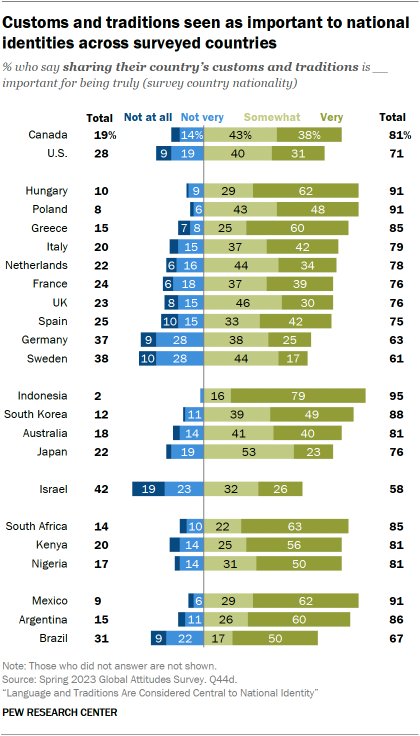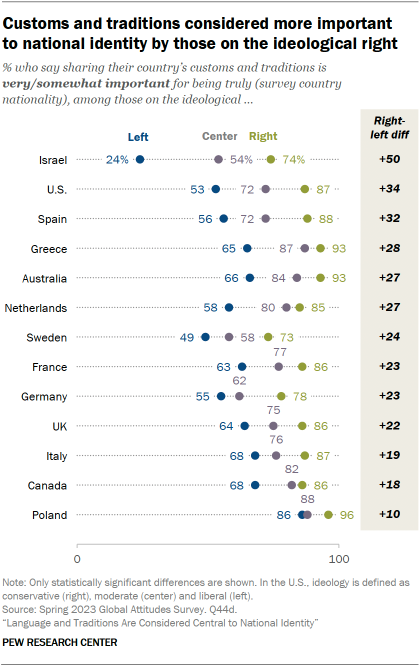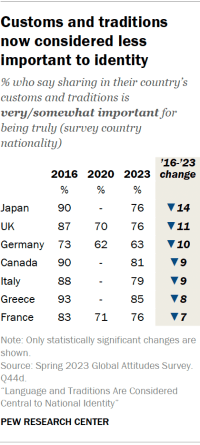
Majorities in all 23 countries surveyed say that sharing in their country’s customs and traditions is at least somewhat important to national identity. This includes seven countries where majorities say these national customs are very important to true belonging in their country.
Customs and traditions are seen as important to national identity by nine-in-ten or more in Hungary, Indonesia, Mexico and Poland. A notable 79% of Indonesian adults consider these practices a very important part of being Indonesian.
Israelis are some of the least likely to call shared traditions important to their national identity, along with Brazilians, Germans and Swedes. Roughly a third or more of each say such practices are not very or at all important.

Who is most likely to see customs and traditions as important to national identity?
In over half of the countries surveyed, adults who are affiliated with the country’s primary religion are more likely than those who aren’t to place importance on partaking in national customs. For example, 85% of Italians who identify as Catholic see shared cultural practices as important to being truly Italian, compared with 65% of those who are not Catholic.
Political ideology is also tied to views of national identity. In many of the countries where we measure respondents’ ideology, those on the right are more likely than those on the left to place importance on shared customs and traditions. The difference is greatest in Israel, where about three-quarters of those on the right hold this view, compared with roughly a quarter of those on the left (74% vs. 24%).
Older adults – those ages 40 and older – are also more likely than their younger counterparts to call these practices important to their national identity in about half the countries surveyed. The largest age difference is in Japan, where 81% of older adults say sharing in traditions is important, compared with 60% of adults under 40.
Changes in views over time

In seven of the countries where this question was previously asked, the shares who say partaking in these practices is important have decreased significantly since 2016. These include Canada, Japan and several European countries.
Though the shares have decreased, shared customs and traditions remain an important component of national identity in each of these places.




